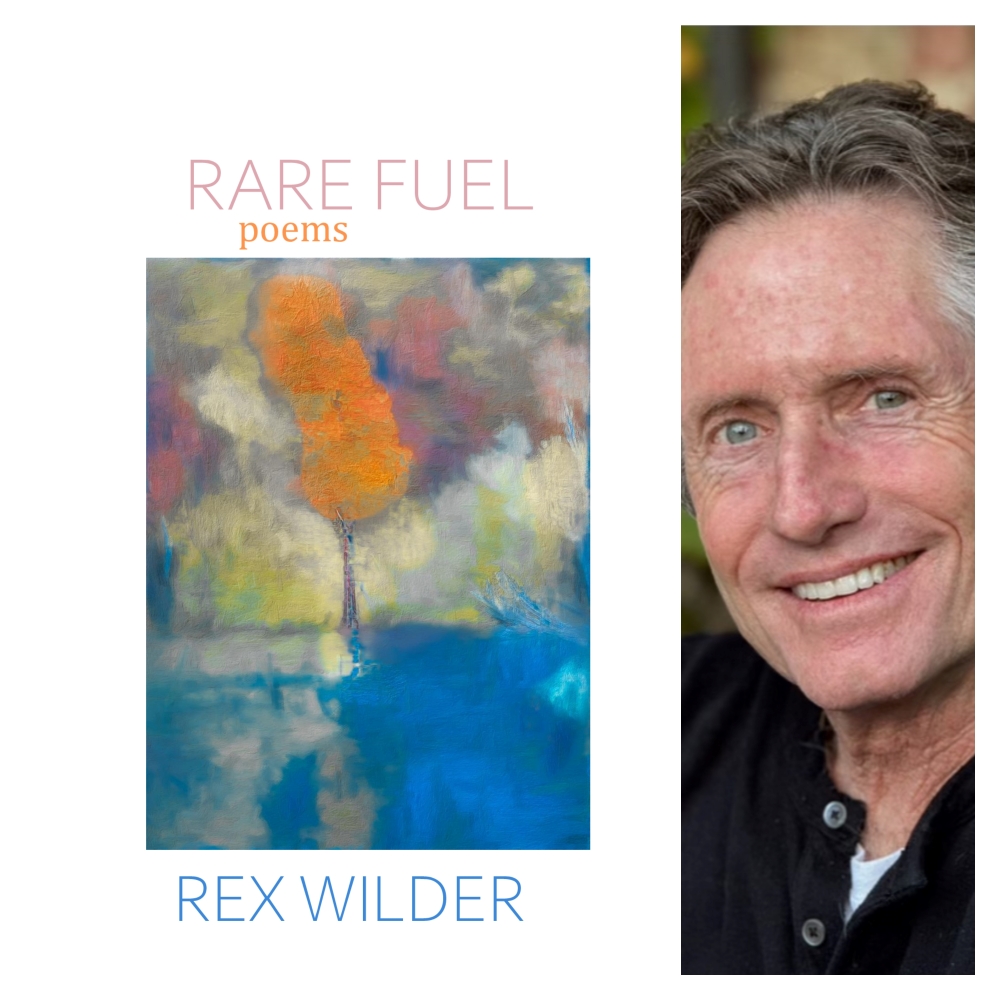Technically deft and emotionally intelligent, devoted to clarity and never simple, open to all and yet resistant to normies, worldly and otherworldly, “off leash at last,” Wilder’s fourth collection holds together around its memorable topic: the poet’s time as an inpatient in a mental health facility, alongside the kindness, the weirdness, the characters and the discoveries he made there. You can place it alongside the language’s other great verse chronicles of madness: Christopher Smart, say, or Ivor Gurney. You can also place it, easily, in the company of poets known for a fine ear: half-rhyming “tell” with “economical,” say, and finding the assonance between “ashore” and “love” amid the “standoffish deeps. Also, “grave” and “grieve” and the sand in a sieve. Don’t let this one slip through your living hands.
–Stephanie Burt (she/her) Donald and Catherine Loker Professor of English, Harvard University, poet, and “one of the most influential poetry critics of her generation” (New York Times)
These days I’m smiling more
broadly, swaying with the palm
trees. With each trip around
the sun, there’s a more profound
patina on our prospects,
a soul-surface that blinds me
to the limits of setting
our sights, where each of us
who had failed to kill
ourselves learned to live.
In Rare Fuel, Rex Wilder is the Virgil who guides us through the underworld of his own personal hell, a mental breakdown that nearly killed him. With utter candor, Wilder describes his remarkable, harrowing journey from the brink of self-annihilation and back to this lovely world, and what I admire most about these poems is that he finds a way to give language to the unsayable. How do you describe the mind unmoored, the soul deranged? Wilder finds words for this, in a collection that will leave you shaken—but nonetheless full of hope. A beautiful book.
–George Bilgere, Poet Laureate Billy Collins’ “welcome breath of fresh, American air” and Distinguished Professor of English at John Carroll University
Rex Wilder makes words unveil feelings, and his poems are new and surprising while hewing to traditional forms. He writes about serious mental illness with sly wit, unfolding meaning, and unsentimental pathos. This collection is generous and universal—embracing the world with all its trials and triumphs and grounding us in memory, recollection, and joy; as he writes in “Recipe,” “It will get dark with or without us / but without us, I won’t care.”
–Katherine Howell, Literary Editor, National Review
In Rex Wilder‘s poems, his “traumatized heart” beats with troubled and tenacious language. Excruciating experiences toward self-worth and sanity keep the reader rapt, awaiting an uneasy affirmation of “peaceable suspense.” These are honest poems of perseverance, seeking clarity and calm while his cri de coeur persists.
–Susan Kinsolving, winner of the Poetry Society of America’s Lyric Poetry Award and finalist for The National Book Critics Circle Award
Honestly, as a psychiatrist and a human, I would read anything Rex Wilder writes. In these penetrating, intimate poems, the author courageously chronicles a dark night of the soul depression, his inpatient stay in a psychiatric facility, and breathtaking emergence into the light. I applaud Rex as a powerful role model for others on similar journeys as they grow in ways that will uplift their souls. Highly recommended.
–Judith Orloff, MD and New York Times bestselling author of The Genius of Empathy
In Rare Fuel, by Rex Wilder, a severe illness leads to reparation, even wholeness, in language that is fresh and lyrical, and in an original use of classical forms. After recovery, the poet gains wisdom and shares it with us all. There’s a new music in many of his lines: “every song / begins in song’s absence,” in “looking is no substitute for seeing, / And only illness can startle love into being,” “this strain of love, its stain,” “the high note / only a lover can bear” or “I laugh / at the Church of I Guess. / I have nothing to confess.” “Canal Nocturne” is a sensitive, original take on the pandemic. The book rings with the exhilaration of freedom from the chains of confinement.
–Grace Schulman, Author of Again, the Dawn: New and Selected Poems and winner of the Frost Medal for Distinguished Lifetime Achievement in Poetry






Reviews
There are no reviews yet.